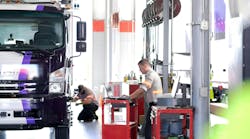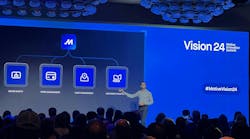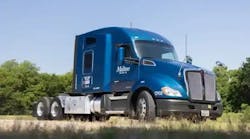There are many things in this life that we intuitively know to be true even though we can't offer any verifiable proof. Since FLEET OWNER is a business magazine for the trucking industry, this isn't the place to talk about the big issues of life that so often fall into that category.
However, the importance of investments in information technology, especially the onboard variety, is a perfect industry example of just that paradox.
Over a decade ago one of the sharpest fleet managers I've ever met told a gathering of his peers that he was going to invest in the then brand-new satellite communications technology. “I have no way of calculating a return on investment, but I just have to believe that knowing where my trucks are is going to help me make money,” he said.
He was right, even though he couldn't prove it, and many other fleets followed him down that profitable path. They've all made that investment, however, without hard, third-party, scientific evidence to back them up. Until now, that is.
Tom Hubbard, a professor at the University of Chicago's Graduate School of Business, has just released a formal study that finds a strong productivity gain directly attributable to the use of onboard computers (OBCs) with wireless communications.
Among the study's findings: Fleets using OBCs with communications averaged a 13% increase in capacity utilization, a productivity gain valued at nearly $16 billion.
Although the study is based on 1997 statistics from the latest U.S. Census' “Truck Inventory and Use Survey,” Hubbard predicts that it's likely those gains have increased as freight markets have become more centralized and as the use of these onboard systems has become more widespread.
By comparison, 1992 statistics from the previous Census Survey showed no discernable utilization differences between fleets that are outfitted with these advanced systems and those with the simple trip-recorder type of OBC without wireless communications.
That suggests, says Hubbard, that returns lag behind IT adoption because it takes awhile for fleets to figure out how to best use the new systems. Again, an obvious conclusion to anyone involved in fleet management that now has objective evidence to back it up.
Fleets that went out on a limb to invest in wireless OBCs should be happy to see there's empirical evidence that they were right to trust their intuition.
Looking beyond the “I told you so” value, though, the real importance of Hubbard's work is that trucking finally has proof that there's a productivity payoff for adopting new information technology.
We've known it all along, but it's comforting to have some objective research behind that certainty.
(Hubbard's formal paper on OBCs and truck productivity, along with related studies, is available on the web at http://gsbwww.uchicago.edu/fac/thomas.hubbard/research/. )
E-mail: [email protected]
Web site: www.fleetowner.com


